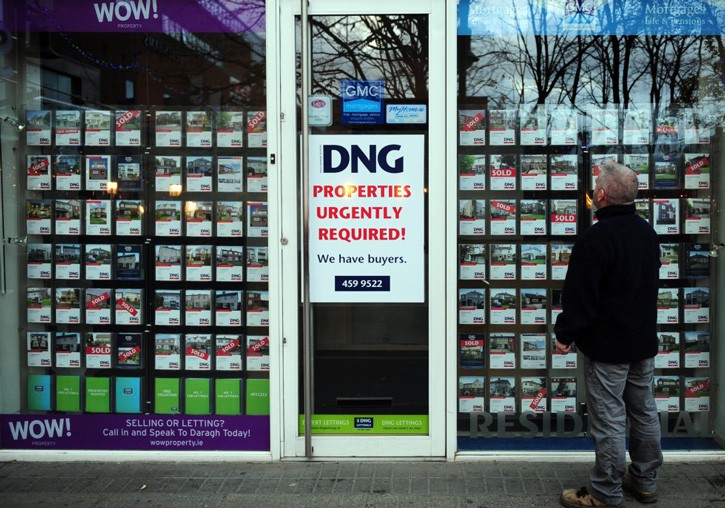Residential building activity levels for 2015 reveal worryingly low trend in the rate of new construction
The chronic housing shortage in the capital continues, as Dublin experienced a significant drop in the number of new housing units built last year. Only 2,892 residential housing units were built, compared to 3,268 units in 2014.
Across the country 12,666 units were completed in 2015. While this was an increase of 15% year on year, it is still far shy of the broadly acknowledge 25,000 units needed to meet demands for housing.
Worryingly, the number of residential units commenced in 2015 increased by a mere 4.9% from 7,717 units in 2014 to 8,093 units in 2015. The only counties to experience any increase in residential commencement activity are Dublin (+24.2%), Louth (+35.7%), Kildare (+30.3%), Wicklow (32.1%), Laois (43.2%), Kilkenny (20.7%), Cork (+15%), and Cavan (+15.5%), while all other counties saw reductions in commencement of new residential units.
According to Hubert Fitzpatrick, Director of the Irish Home Builders Association and the CIF “Builders want to build, but they are being held back by a variety of factors, including the high cost of building a house which, incredibly, is higher than the market value of the house in many parts of the country. How can a builder be expected to incur this loss?”
 “Only approximately half of the sale price of a house is the cost of building, the rest is made up of a combination of regulatory compliance and VAT. New homes in the UK have a 0% rate of VAT, while in Ireland a 13.5% rate applies”. This is too high and is making house-building almost unviable in many parts of Ireland.”
“Only approximately half of the sale price of a house is the cost of building, the rest is made up of a combination of regulatory compliance and VAT. New homes in the UK have a 0% rate of VAT, while in Ireland a 13.5% rate applies”. This is too high and is making house-building almost unviable in many parts of Ireland.”
One of the answers to increasing supply of new homes lies in ensuring the availability of mortgages for purchasers of new homes. “We urge the Central Bank to reconsider its macro prudential policy for residential mortgage lending. In particular we believe that a mortgage applicant’s ability to make regular repayments in the way of regular rent- which in many cases is higher than the repayments they would expect to pay on a mortgage- should be taken into consideration.”
“Future housing supply will be a major issue for the new Government to grapple with, as the current impasse in relation to the level of new build must be resolved. If we are to maintain the country’s competitiveness in attracting and maintaining new jobs, then we must ensure that we have a viable supply of residential units available for purchase or to rent in the areas where they are most needed.”

